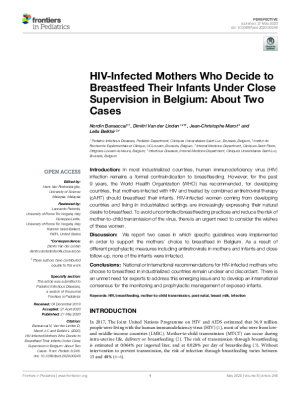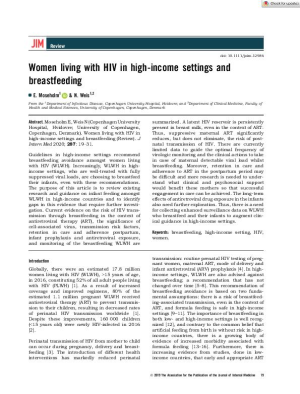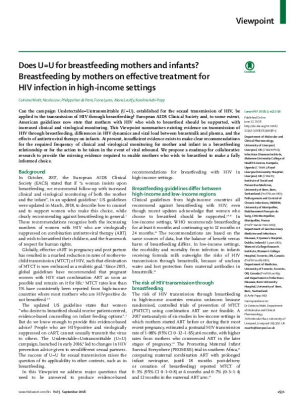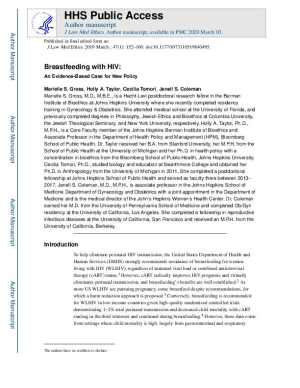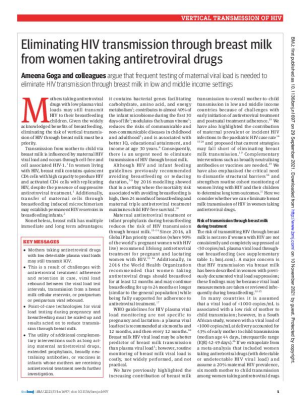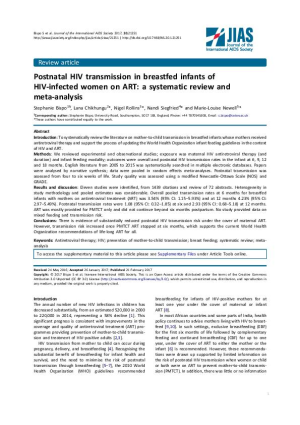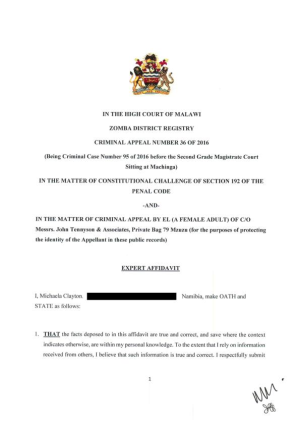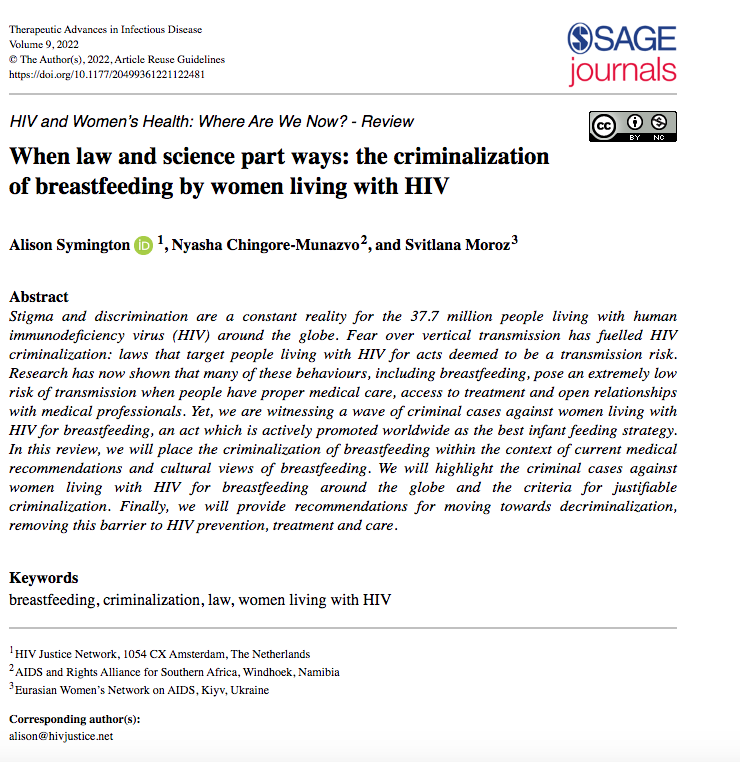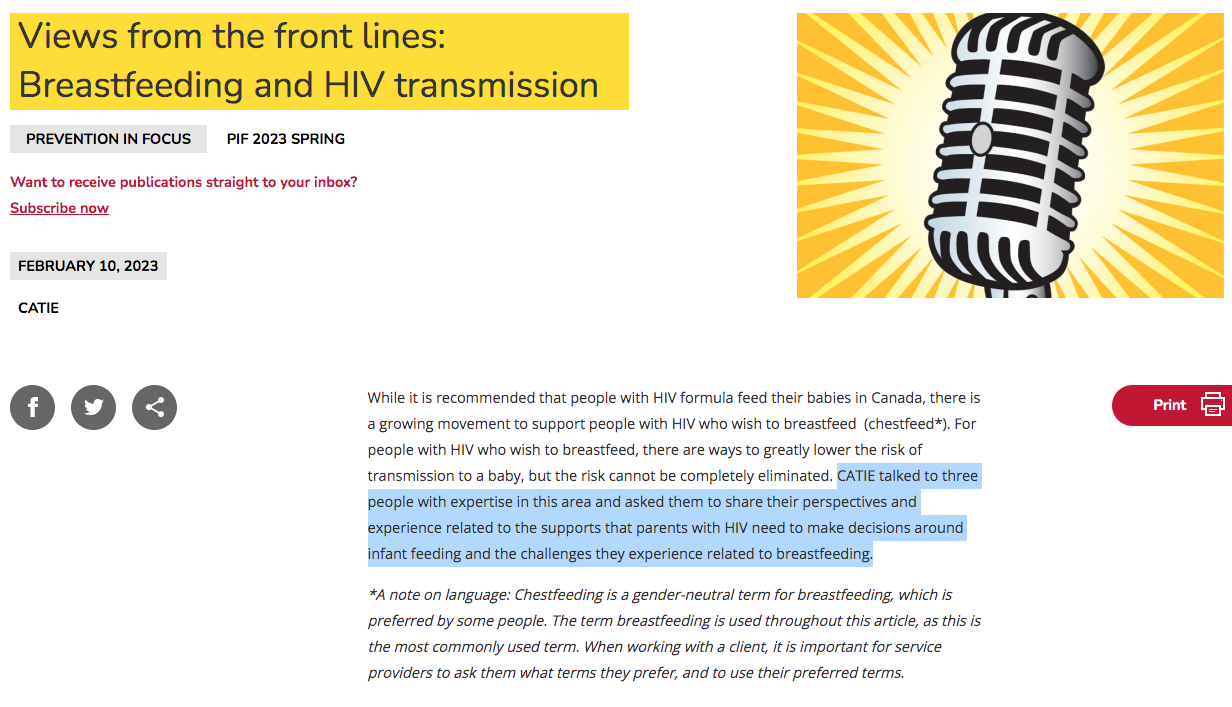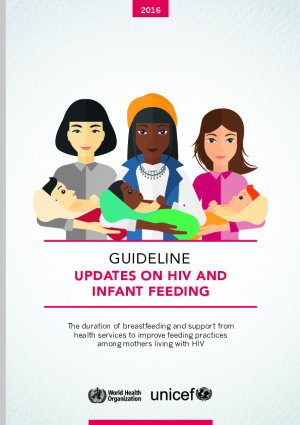A case report from Belgium in which specific guidelines were implemented in order to support two mothers' choice to breastfeed. As a result of different prophylactic measures including antiretrovirals in mothers and infants and close follow-up, none of the infants were infected.
Using science to prove your argument
Transmission - breastfeeding
Women living with HIV in high-income settings and breastfeeding (2020)
A thorough review of policy guidance, science and practice in high income settings from Denmark. It concludes that "suppressive maternal ART significantly reduces, but does not eliminate, the risk of postnatal transmission of HIV through breastfeeding. However, it is important to recognize and acknowledge that some women living with HIV may wish to breastfeed their infant, in which both the healthcare providers and the women need evidence-based information about the risks and benefits to enable an informed decision."
Does U=U for breastfeeding mothers and infants? Breastfeeding by mothers on effective treatment for HIV infection in high-income settings (2018)
Can the campaign Undetectable=Untransmittable (U=U), established for the sexual transmission of HIV, be applied to the transmission of HIV through breastfeeding? A group of global experts propose a roadmap for collaborative research to provide the missing evidence required to enable mothers who wish to breastfeed to make a fully informed choice.
No HIV Transmission From Virally Suppressed Mothers During Breastfeeding in Rural Tanzania (2018)
Brief report from clinical practice in Tanzania which found no HIV transmission from mothers who were retained in care and had suppressed viral load whilst breastfeeding. They conclude: "Breastfeeding signifies a very low risk when mothers adhere to ART."
Breastfeeding with HIV: An Evidence-Based Case for New Policy (2019)
A review of the benefits and risks of breastfeeding for mothers living with HIV, and recommendations that the United States Department of Health and Human Services (DHHS) include breastfeeding as an option for with living with on suppressive antiretroviral therapy who maintain an undetectable viral load.
Eliminating HIV transmission through breast milk from women taking antiretroviral drugs (2021)
Ameena Goga and colleagues argue that frequent testing of maternal viral load is needed to eliminate HIV transmission through breast milk in low and middle income settings.
Postnatal HIV transmission in breastfed infants of HIV-infected women on ART: a systematic review and meta-analysis (2017)
A systematic review of all literature to date (2017) on mother-to-child transmission in breastfed infants whose mothers received antiretroviral therapy and support the process of updating the World Health Organization infant feeding guidelines in the context of HIV and ART, which concludes that there is evidence of substantially reduced postnatal HIV transmission risk under the cover of maternal ART.
- Alternative links
- Read on the JIAS website
Expert affidavit in E.L. case on the impact of laws applied to criminalise HIV transmission or exposure
Affidavit provided to the High Court from Michaela Clayton, a human rights lawyer with extensive expertise in HIV/AIDS and human rights issues, concluding that, in her expert opinion, HIV criminalisation was unlikely to prevent new infections or reduce women's vulnerability to HIV but could in fact harm women rather than assist them, and also may negatively impact both public health and human rights.
- Alternative links
- Traduction française automatisée
When law and science part ways: the criminalization of breastfeeding by women living with HIV
In this study, the authors place the criminalisation of women with HIV for breastfeeding within the context of current medical recommendations and cultural views of breastfeeding. They review the criminal cases against women living with HIV for breastfeeding around the globe, examine the injustice of these prosecutions, and provide recommendations for decriminalisation.
Views from the front lines: Breastfeeding and HIV transmission
CATIE talked to three people with expertise in this area and asked them to share their perspectives and experience related to the supports that parents with HIV need in order to make decisions around infant feeding and the challenges they experience related to breastfeeding.
WHO Guideline: Updates on HIV and Infant Feeding (2016)
The overall purpose of this guideline is to improve the HIV-free survival of HIV-exposed infants by providing guidance on appropriate infant feeding practices and use of ARV drugs for mothers living with HIV in countries with high HIV prevalence and settings in which diarrhoea, pneumonia and undernutrition are common causes of infant and child mortality.
The guideline addresses four aspects of infant feeding in the context of HIV:
-
the duration of breastfeeding by mothers living with HIV;
-
interventions to support infant feeding practices by mothers living with HIV;
-
what to advise when mothers living with HIV do not exclusively breastfeed; and
-
what to advise when mothers living with HIV do not plan to breastfeed for 12 months.
The guideline informs national policy-makers on what may be relevant for national policies and programmes, it provides guidance to health-care providers, researchers and clinicians involved in managing pregnant women and mothers living with HIV at various levels of health care.

